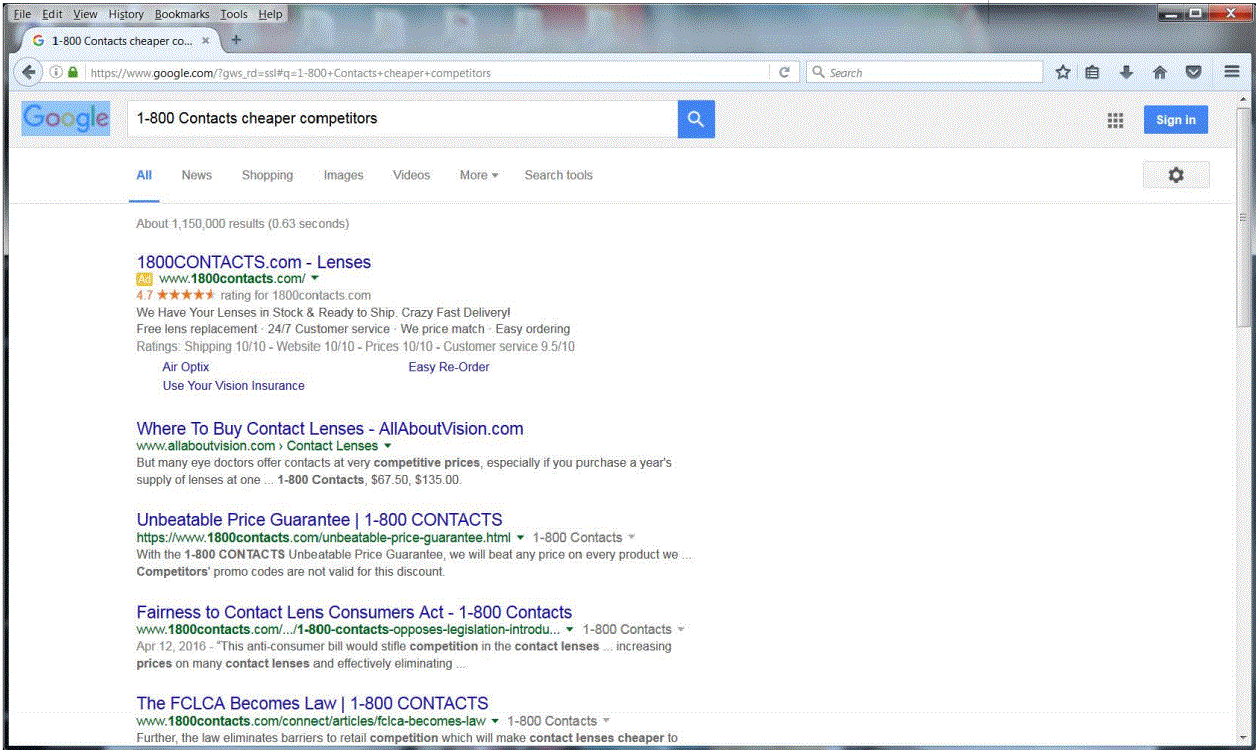Court Cleans Up Trademark Status of the Phrase “Meth Lab Cleanup”
The holy grail of trademark owners is to obtain enforceable trademark rights for the standard ways people talk to each other. If achieved, the trademark owner can put up a toll gate on ordinary conversation and thwart or even shut…
Why I’ve Paused My Blogging at Forbes
Four years ago, I joined Forbes’ “contributor” program, which lets independent authors publish/blog through Forbes’ network without editorial pre-review. Jonathan Glick at Re/Code called these programs “platishers”, a portmanteau of “platform” and “publisher.” (Personally, I’d vote for “platisher” as one…
AdWords Buys Using Geographic Terms Support Personal Jurisdiction–Rilley v. MoneyMutual
This is a personal jurisdiction case, so I’ll get right to the point. If an AdWords advertiser buys keywords that contain geographic terms, the advertiser might face a greater risk of personal jurisdiction in those geographies. It’s likely that buying…

Handicapping the Olympic Committee’s Quest to Control Tweeting (Guest Post)
By guest blogger Prof. Alexandra Jane Roberts [Eric’s intro: the Rio Summer Olympic games may be over, but the legal wranglings from the games will keep going and going–even longer than the bike road race (and perhaps with as many…
The Internet Rallies Against A Terrible Section 230 Ruling–Hassell v. Bird
2016 has been a tough year for Section 230 jurisprudence, and the nadir (so far) was the appellate court ruling in Hassell v. Bird. As you recall, the case involves some negative Yelp reviews about an attorney, Hassell. Hassell sued…
Court Benchslaps Trade Secret Plaintiff and Counsel For Bad Faith Litigation–RBC Bearings v. Caliber
As you know, for the past year I’ve been railing against the Defend Trade Secrets Act’s unprecedented and ill-advised ex parte seizure provision. The good news is that, as far as I know, there’s only been one request for a…
Talk on Trends in Online Trademark and Marketing Law
In April, I gave a talk in Israel at an inaugural event to celebrate the life and work of Avron Gabrieli, one of Israel’s most venerable and well-known IP lawyers who died in 2015. Initially, the talk topic was styled…

Copyright Owner Denied Attorneys’ Fees In Suit Against Popcorn Time User–Cobbler v. Doe
This lawsuit involves the unauthorized download of a 2015 Adam Sandler movie, The Cobbler. The court says The Cobbler has been illegally downloaded 10,000 times in Oregon alone. WTF? I can’t wrap my head around the fact *anyone* chose to…
Section 230 Immunizes Twitter From Liability For ISIS’s Terrorist Activities–Fields v. Twitter
Abu Zaid, an alleged “lone wolf,” killed two American contractors in Jordan. ISIS claimed responsibility for the deaths, but “Plaintiffs do not allege that ISIS recruited or communicated with Abu Zaid over Twitter, that ISIS or Abu Zaid used Twitter…

FTC Sues 1-800 Contacts For Restricting Competitive Keyword Advertising
For over a decade, I’ve blogged about 1-800 Contacts’ campaign to suppress competitive keyword advertising, including its legislative games (e.g., those times when 1-800 Contacts asked the Utah legislature to ban competitive keyword advertising) and at least 15 lawsuits against…
